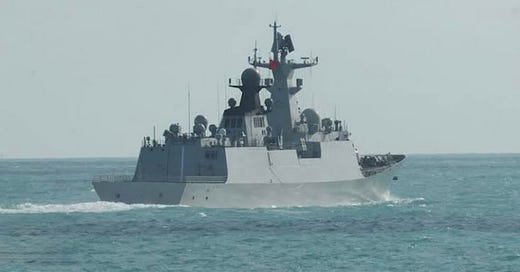Chinese Warships in the Tasman Sea: An Unprecedented Pacific Signal
The case for New Zealand to join Pillar Two of AUKUS now appears to be compelling.
The presence of three Chinese warships - the cruiser Zunyi, the frigate Hengyang, and the supply ship Weishanhu - conducting live-firing exercises in the Tasman Sea has sparked alarm in New Zealand and Australia.
Positioned roughly 340 nautical miles east of New South Wales, after earlier nearing within 150 nautical miles of Sydney, the Chinese naval ta…
Keep reading with a 7-day free trial
Subscribe to Cranmer’s Substack to keep reading this post and get 7 days of free access to the full post archives.





